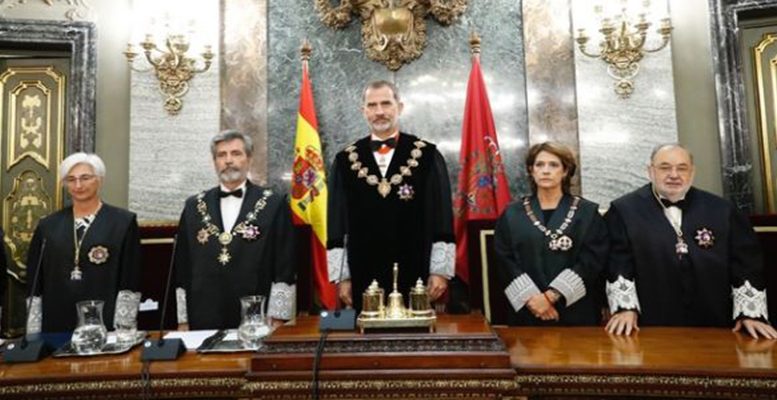Fernando González Urbaneja | In Europe we know of cases where governments have been blocked for up to a year or more and states have continued to function reasonably normally. The Netherlands, Belgium, Italy and even Germany have maintained deadlocks to form coalition governments for many months. The same happened in Spain during the electoral agony/anomaly of 2019, so we already have experience. But these difficulties being transferred from the executive to other powers is not frequent.
The thousand days of blockage in the mandatory replacements of the judiciary and more than a year of three members of the Constitutional Court, including the president and vice-president, constitute a democratic anomaly, a constitutional breach and evidence that things are going badly, that politicians are not capable of doing what they should.
Several attempts to conclude a deal in the traditional way to renew the judges’ government have failed in the final stretch due to errors of judgement and purpose; serious errors in all cases due to intolerance and/or unjustifiable and, in many cases, ill-founded calculations of influence. The two central governing parties have failed, they have not been able to compose a sufficient list. They have failed in form and substance, which is not unusual since in previous cases it was not easy to reach an agreement either. But on this occasion, all limits have been exceeded.
The judicial year opens this week with a formal, liturgical act in which the blockade will be staged, but not an alternative of democratic normality. So far, several squires of the leaders of the two central parties have tried to put together an agreement and failed: the bosses have not given the go-ahead. The responsibility lies with Sánchez and Casado, more with the latter than the other, as the PP’s head has been more confused and more obstructive. But whether each is more or less responsible, the failure lies with both.
At this point, other formulas should be explored, more pragmatic procedures to reach a compromise. One of them would be to resort to some respectable and respected mediator(s) who, as mandatory arbiters, could propose to the politicians the best list of reasonable candidates, even a list of twice as many as required, in order to facilitate the final point with clear rules to reach an agreement. Spanish democracy should not allow a perpetual deadlock that damages its reputation and brings it into disrepute. Sánchez and Casado have to step up to the plate and undo the mess, get out of their comfort zone and solve the problem.





